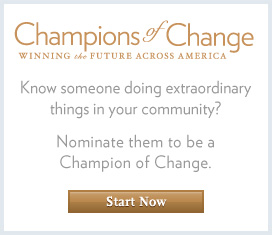Champions of Change Blog
Ka Mauli o ka `Āina a he Mauli Kānaka (The Life of the Land is the Life of the People)
Posted by on May 13, 2013 at 11:54 AM EDT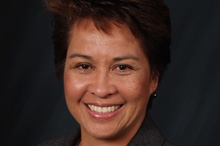 Mary Frances Oneha is being honored as a Champion of Change for her efforts as an AAPI Women leader.
Mary Frances Oneha is being honored as a Champion of Change for her efforts as an AAPI Women leader.
I come from a place where every rock, mountain, tree, and valley has a name and is living, where “place” is seen as a refuge or sanctuary for spiritual renewal or regaining cultural rituals, where issues of health are inseparable from issues of land and water. I come from a peoples born from the union of Papa, Earth Mother and Wākea, Sky Father, who understand “place” as an extended member of the family, whose land base derived their physical sustenance, and whose pursuit of self-determination has been unrelenting as a means of survival.
It is indeed an honor to be nominated as an AAPI Woman Champion of Change, but the honor is more aptly deserved for Native Hawaiian communities who are initiating their own changes within their environments to improve the well-being of their families and neighbors. Multiple health disparities have consumed Native Hawaiians, the indigenous peoples of the State of Hawaii, for many years due to significant historical events. We are challenged today at finding solutions which will be sustainable within communities. These solutions must address community ownership, leadership, and cultural humility.
After a decade as a nurse serving acute and critically ill children, I have spent the past 20 years committed to efforts which raise the health status of Native Hawaiians to the highest possible level from a holistic perspective. These efforts have been most evident through teaching at a university, practicing at a large community health center (Waianae Coast Comprehensive Health Center), conducting community based participatory research, and most recently, serving as Chief Executive Officer of Waimanalo Health Center on the island of Oahu, Hawaii.
I have been honored to be a part of experiences and knowledge shared by community members, of stories told by those struggling to find their place, of dreams shared by kupuna (elders), of “informed consent” being about acceptance of the researchers credibility versus agreement to participate in a research project, of initiatives creating behavior change to improve the health of an `ohana (family), of Native Hawaiian employees accepted into a nursing program, of ensuring that the way knowledge is conveyed and received remains culturally intact – the challenge is to decolonize, and of the health impact supports (person, place, or thing) have on a person. The Waimanalo Health Center is embarking on a path to integrate Native Hawaiian culture throughout its operations. This began with Board and staff support and will move to seeking community input. It has been a long journey, and at times, I have become impatient with seeking an outcome. Much of what I do demands outcomes. For any sustainable change, I must respect the journey by chronicling, listening, and observing. This is about acknowledging their truth, providing an environment for people to grow and look deeply. It is about evolving a new awareness. It is community breathing – inhaling and exhaling – slow, at times ragged and edgy that springs forth a fresh awareness, a new plateau of thought that change begins to happen.
Mary Frances Oneha is CEO of the Waimanalo Health Center in Waimanalo, Hawaii.
Learn more aboutMovement within a Movement
Posted by on May 13, 2013 at 11:41 AM EDT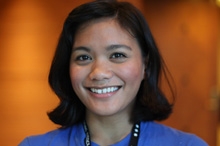 Catherine Eusebio is being honored as a Champion of Change for her efforts as an AAPI Women leader.
Catherine Eusebio is being honored as a Champion of Change for her efforts as an AAPI Women leader.
I’m not a minority. I’m a movement.
I came of age at a time when it was dangerous to be an undocumented student. In the early stages of the immigrant youth movement, the ever-present risk of deportation forced only the bravest of us to meet in secret as we sought to support each other in our pursuit of higher education. But since then, this movement has evolved. Not only are we more powerful and organized, but this movement also challenges the notion of belonging and worth in America as immigrants and more broadly as people of color.
But within this movement, I often experienced being the only Asian American – a “minority within a minority.” Among other barriers, my community expressed a pronounced, paralyzing fear for deportation that could result from political involvement. While many youth were interested in participating in efforts advancing immigration reform, their families pressured them to avoid taking the risk. Therefore, I devoted myself efforts that would engage Asian American communities. At the same time, I encouraged immigrant youth-led efforts to be more sensitive, and inclusive of non-Latino community members.
But with those priorities, a gendered lens took a back seat. I often noticed in which women were hard at work, behind the scenes. Men, on the other hand, would be the most visible or more often regarded as leaders.
This is why I’m proud to lead Dream Summer with the support of UCLA Labor Center and Asian American/Pacific Islanders in Philanthropy. Dream Summer is a national internship program that is led by and for immigrant youth. Not only are we raising the visibility and uplifting the voices of Asian American and Pacific Islanders within this movement; we are also intentional about the inclusion and visibility of LGBTQ and women leaders.
Now in its third year, Dream Summer has proven to create hundreds of champions of change, each one making an impact in their local community.
I am honored to be recognized as a Champion of Change. As women and as members of the Asian American community in particular, we must continue to fight, challenge, and build opportunities for those coming after us.
Catherine Eusebio is a Social Justice Fellow as Asian American/Pacific Islanders in Philanthropy and a board member of United We Dream.
Learn more aboutNo Days Off
Posted by on May 13, 2013 at 11:19 AM EDT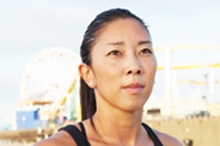 Natalie Nakase is being honored as a Champion of Change for her efforts as an AAPI Women leader.
Natalie Nakase is being honored as a Champion of Change for her efforts as an AAPI Women leader.
In September, I began working for the Los Angeles Clippers as an intern video coordinator. The duties and responsibilities are assisting our head video coordinator and our coaching staff. Each day, the video staff and I break down film of our opponents, which helps prepare our team for games, and we also pass and rebound for the players on the court. The job demands long hours, mostly watching tape, which is perfect because studying other NBA teams is the fastest way to learn the league. I am fortunate to be learning from a hard-working staff, one that also values teaching and mentoring. In the coming years, I see myself coaching on an NBA staff. In order to make this dream a reality, I am committing myself to learning something new every day. I must challenge myself, each day, to do something I fear or am reluctant to try.
I know from observing our coaches during practice that I have so much to learn; yet I couldn’t be in a better place to do so. I believe our head coach and staff, Vinney Del Negro, Bobby Ociepka, Robert Pack, Marc Iavaroni, Dave Severns, Howard Eisley, Raman Sposato, and Bob Thate are some of the hardest-working coaches in the NBA. I’m extremely grateful for the opportunity they have given me. I also believe the way my parents raised me helped prepare me for an NBA environment. At a young age, I was trained to work hard every day. My dad might as well have this motto: No Days Off. He works weekends and rarely takes a vacation day. He engrained in his kids that summers were for off-season training, not for vacation. My dad is also passionate about basketball – watching and playing. Obviously, his obsession eventually became mine.
Since I was a little girl, my personality has always been to take the tougher route. I enjoy taking on challenges and never wanted to do something that was easy. The way I see it, the more difficult, the better.
After college, I played two years in the National Women's Basketball League, becoming the league’s first Asian American player. Later, I had the opportunity to play and coach professional basketball overseas in Germany. Afterward, I became the first female assistant in a professional men's league in Japan. The next year, my second in Japan, I became the first female head coach in a professional men's league.
I always tell myself, “Everything happens for a reason.” I don't believe in luck; I subscribe to the age-old saying, “Luck is when preparation meets opportunity.” When I was in Japan, I worked with former NBA head coach Bob Hill, who taught me to always be prepared for the next step. That is now part of my lifestyle: eyes up, ready for the next challenge. I am blessed to have discovered my passion, and also to have the ability to do it everyday. I wake up feeling grateful and enjoy every second of my work. I feel the NBA is where I belong.
It has been a humbling experience to be recognized for these accomplishments. I really hope my work has inspired young women to go after their dreams – no matter what the situation may be. The more at risk, the better! At the end of the day, I am not afraid to fail. I've failed numerous times before. It happens, but you've got to keep trying and believing in yourself. I believe I can create my own world. And I believe I can make any situation my reality.
Natalie Nakase is a video coordinator intern with the L.A. Clippers.
Learn more aboutFostering Allies and Advocates through Developing Empathy
Posted by on May 13, 2013 at 11:00 AM EDT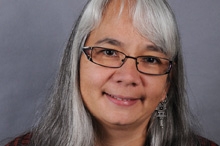 Karen L. Suyemoto is being honored as a Champion of Change for her efforts as an AAPI Women leader.
Karen L. Suyemoto is being honored as a Champion of Change for her efforts as an AAPI Women leader.
I initially became a clinical psychologist to help heal individual pain through psychotherapy. Now I use my skills in my scholarship, teaching, and mentoring to help people tolerate and move through the pain of understanding social inequities in order to transform that pain into social justice action. As an Associate Professor of Clinical Psychology and Asian American Studies, my work focuses particularly on empowering Asian Americans and Pacific Islanders to resist oppression and on developing coalitions across privilege, not only to enlist allies in the movement for racial justice, but also to address the ways in which we may enact discrimination within our own AAPI communities.
In my teaching and my research, I aim to foster understanding that everyday moments in our lives are choices that either compound the pain of injustice or contribute to healing. This understanding is particularly important in educating human service professionals, where the positive or negative effects of such choices are magnified through their effect on service provision, teaching, modeling, and organizational policy.
In my work, I collaborate with students and professionals to dismantle the “armor of ignorance” that sustains injustice. Together, we explore and validate the pain of discrimination. Simultaneously, we engage in a painful and difficult journey of coming to know the "other," to see ourselves within them and them within us, to care for and about them, and to see and share the pain of injustice. This is a process of understanding and feeling the everyday realities of oppression and privilege, along with the practical and relational costs of these inequities.
Dismantling the armor enables the development of true empathy. Empathy is the ability to feel with another, not just for another. Empathy involves the willingness to hold another’s pain alongside one’s own. This kind of empathy forms the basis of authentic relationships and motivates the transformation of pain into action. As (then) Senator Obama said in 2006: “Empathy is a quality of character that can change the world—one that makes you understand that your obligations to others extend beyond people who look like you and act like you and live in your neighborhood…. it’s not always easy…. But I hope you don’t do what’s easy. I hope you do what’s hard.”
My scholarship and teaching encourage doing what is hard by illustrating the personal and relational benefits of choosing that path. In my experience, as you come to understand the personal responsibility inherent in your choices, you become empowered to transform pain into action that reduces the negative impact of racism and social injustice.
Everyday, I am impressed by the courage my students show in removing their armor to realize their desire to be good, just people. Continually, I am inspired by the ways that they use their learning in everyday actions that challenge oppression in their roles as human service providers, community organizers, faculty members, clinic directors, researchers, community leaders, and engaged citizens. My nomination as a White House Champion of Change is particularly meaningful to me because it was initiated by some of these courageous students and supported by so many students and colleagues. I am deeply honored and humbled by being selected. That others recognize the value in what I do makes me believe even more strongly in the ripple effect: together we can change the world.
Karen L. Suyemoto is an Associate Professor of Clinical Psychology and Asian American Studies at the University of Massachusetts, Boston.
Learn more aboutSouthern Hospitality
Posted by on May 13, 2013 at 10:39 AM EDT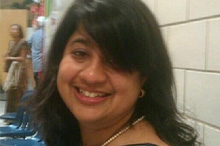 Aparna Bhattacharyya is being honored as a Champion of Change for her efforts as an AAPI Women leader.
Aparna Bhattacharyya is being honored as a Champion of Change for her efforts as an AAPI Women leader.
“I've learned that people will forget what you said, people will forget what you did, but people will never forget how you made them feel.”– Maya Angelou
In my personal experience, how people make me feel in both difficult and happy times is something I always remember. I have a distinct memory of my mother saying “there is nothing like Southern Hospitality” after a couple helped with us a flat tire while on a family vacation. Being from Georgia, this made me really proud to be from the South. Being a Southerner and having parents who had a restaurant growing up has made hospitality a key component of what is important in our work. How do we make people feel when things are tough in their lives? How do we support them when they are sad, mad or even happy? How do we have a loving conversation with someone when we have to challenge or confront them? Raksha’s work is about making our community feel comfortable in asking for help, building a community that will love and support them along the way, and encouraging community members to making healthy changes in their own lives.
I have known since elementary school that I wanted to work to end domestic and sexual violence. I had originally wanted to be a lawyer but then after volunteering as a victim advocate in college, I knew this was the path I wanted to take. I had started working for the City of Atlanta as a victim advocate when Raksha was just starting. My father handed me a Raksha flyer and little did I know that Raksha would be my calling. It is through Raksha that I learned to truly love my community.
Raksha, meaning protection, was started by young women who wanted a resource in Georgia for South Asians seeking support. There was no organization to serve our community’s needs. I was so lucky to be a part of developing and growing Raksha. It is not just a job, it is my passion. While our focus is usually on working with South Asians, I always try to make sure we are advocating for all immigrant communities. Raksha services have grown and adapted based on the needs of the individuals coming to us. Since 1995, Raksha has come a long way in building community trust and partnerships. It is such a gift when community and faith leaders open their doors to Raksha to help make our community stronger and healthier.
I love this work because it’s creating a space that I personally know has made a difference in my life. I love this organization because it has started dialogues in the community that were nonexistent before. I love this work because I get to see family members, friends, community, youth, and faith leaders find ways to take their own stand and make the world a better place. Of course, it is not easy to hear about abuse, violence, and discrimination on a regular basis, and it is my earnest hope that these ugly truths are eliminated someday. What IS inspirational is when community members who find their own strength, tell their own truths, and have the courage to make their own choices.
It is a great honor to be recognized for the work I have been doing over the years. I sincerely hope that this recognition will motivate individuals to do something to create peaceful dialogues and end violence in our communities; to find ways to provide support to the community members who are being abused; to lift the stigma of counseling, and create ways for survivors of violence to heal. This work is lifelong and hard but we need to come together to find ways to truly build healthy relationships and work to end the violence in our communities.
Aparna Bhattacharyya is the Executive Director of Raksha, Inc.
Learn more aboutComing Together to Build One America
Posted by on May 13, 2013 at 10:16 AM EDT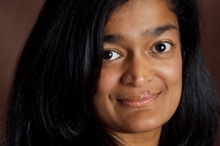 Pramila Jayapal is being honored as a Champion of Change for her efforts as an AAPI Women leader.
Pramila Jayapal is being honored as a Champion of Change for her efforts as an AAPI Women leader.
I’m a proud immigrant from India. My parents used their last savings to send me here for college when I was 16 because they wanted me to have the best education possible. Now, a mother myself, I know what an enormous sacrifice it was to send a child so far away, knowing they would probably never return back. Through my years of work with immigrants from all over the world, I’ve witnessed even greater sacrifices from so many who came to America seeking safety, stability and economic opportunity.
For the past 23 years, I’ve been inspired by countless people on the ground who demonstrated tremendous resilience and courage as they struggled to make ends meet. I began my social justice career in international public health, running a $6 million loan fund for critical health projects. I had the opportunity, too, to spend two years living in villages and small towns across India understanding problems and solutions that came from the ground. Then, September 11, 2001 happened. I started OneAmerica—originally called Hate Free Zone Campaign of Washington—as a response to the hate crimes and backlash against Arabs, Muslims and South Asians immediately after 9/11. What started as simply protecting people against hate crimes turned quickly into much more—working to defend our civil liberties and rights for all immigrant communities.
We realized quickly how critical federal immigration policy reform was to our democracy and our members. In 2003, through the Immigrant Worker Freedom Ride, we began working on immigration reform and never stopped. We built political power for immigrants in our state, registering and mobilizing to the polls tens of thousands of New Americans. We organized in different ethnic communities and advocated for better policies. We worked with media to improve the narrative around immigrants and immigration. Together, with partners, allies and members, we built OneAmerica from a fledgling effort into the largest immigrant advocacy organization in Washington and a strong national force for justice.
Today, as a Distinguished Taconic Fellow at the Center for Community Change, I have a remarkable opportunity to work at the national level on the most important questions of our time: passing immigration reform but also how to navigate our rapidly changing demographics with grace, and how to build an economy that works for everyone, including people of color, women and the most vulnerable. As Co-Chair of the We Belong Together, we’ve also focused on engaging ordinary women and Congress members in advocating for immigration reform that treats women fairly. 75% of immigrants to America are women and children, but past proposals for reform have failed to recognize the contributions and the priorities of women. We’re making sure that won’t happen this time, galvanizing a vibrant effort to bring women’s voices forward in the current legislative process.
It’s been an honor to spend my life working with remarkable immigrants who gave everything to come here. These men and women work every day to pick the fruit and vegetables that we eat, take care of our children and our aging relatives, staff our emergency rooms, start small businesses, contribute vibrancy to our culture, and carry out the many tasks that our economy needs.
Our country is strongest when our movement for justice is strongest. I’ll continue to dedicate my life to reaching for our nation’s beautiful founding ideals: that America is born of hope, possibility and justice, where each one of us has the choice, the opportunity and the responsibility to contribute our full selves to this beautiful place we call home. Together—as One America.
Pramila Jayapal is the founder of OneAmerica and currently a Distinguished Taconic Fellow at Center for Community Change and Distinguished Fellow at the University of Washington Law School.
Learn more about
- &lsaquo previous
- …
- 69
- 70
- 71
- 72
- 73
- 74
- 75
- 76
- 77
- …
- next &rsaquo

